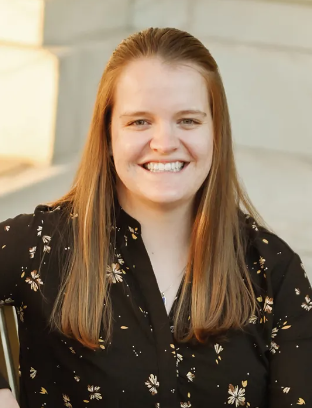Guest blog post by Sydney Mock, Research Associate at Marzano Research
Empowering Families and Communities
In communities across Colorado, numerous families have been strengthened thanks to innovative projects in early childhood education designed to address their needs. From immigrant and refugee families trying to navigate complex systems, to parents and caregivers seeking economic stability, families across the state have been provided with support, guidance, and hope as a result of the Community Innovation and Resilience for Care and Learning Equity (CIRCLE) grant program.
As Colorado residents with backgrounds in early childhood research and education, Carrie Germeroth and I were excited to have the opportunity to evaluate the implementation and impact of the CIRCLE grant program.
In this blog post, we’ll explore some of the success stories from CIRCLE grant recipients and how their projects have positively impacted families across the state. Additionally, we’ll explore the innovative approach to equity in grant making that made these successes possible, highlighting how the CIRCLE program’s commitment to accessibility and support has paved the way for more inclusive funding mechanisms in early childhood education.
Success Stories

You Be You Early Learning
Families in the Denver metro area have seen early education brought directly to their communities via You Be You Early Learning’s mobile preschool.
“[If] you can’t come to our classroom, we come to you—this is access. To us, equity is access,” said Project Director Roya Brown.
The preschool, housed inside of a retrofitted bus, provides free, inclusive early childhood programming to children and families living in low-income communities, ensuring access to quality education for vulnerable populations.
Gloria Sisa is a parent whose child attends the mobile preschool.
“It’s not like I’m just dropping him off somewhere. He’s actually learning something, taking something from it, and he actually has shown a lot of growth since he’s been here,” she said.
Spring Institute for Intercultural Learning
Over 250 children from immigrant and refugee families have been able access early care and education programs as a result of the support of multilingual cultural navigators from the Spring Institute for Intercultural Learning. Individualized system navigation services ensured that families were able to overcome language and other systemic barriers to access services and enroll their children in quality education early education programs.
“It was a great opportunity for us to continue helping the immigrant and refugee community, to connect them with the early childhood education. Based in so many studies show that no-English-speaking family, they are not enrolling their children in preschool or daycare because of their language barrier,” explained Darmian de la Cruz Mayo, the Spring Institute’s program manager for Cultural Navigation.
One parent, Naema Adem, shared her appreciation for the program, saying her child comes home “talking every single day about school.”
“When you see her, she love to communicate, she love to talk with people, she love to learn new stuff. I’m so happy for her, I just say to them ‘Thank you’ every time,” she said.
Jefferson County Head Start
In Jefferson County, parents were not only able to help their own and other children access quality early childhood education by working as classroom aides, but also were provided a pathway to economic stability by Jefferson County Head Start.
“Just having that extra person in there to help guide [students] in the classroom, or … if there’s a kid who needs that extra attention, the teachers are able to step out and have the other kids still be having a book read to them,” said Angela Meldahl, project manager and CSS supervisor.
Meldahl said the parents working as aides have the opportunity to complete their GED and other certifications so they can not only work there, but anywhere as a TA.
Lesley Dewoodey, a classroom support specialist, is one of them.
“Everyone here has become family to me. I wouldn’t trade this job for the world … I think being here has changed me a lot—being able to grow, get diplomas,” she said.
Equitable Grant Making
These are just three of 226 CIRCLE grant recipients across Colorado who were able to strengthen families through their innovative community-based projects and programming. The impact seen in these communities throughout the state was made possible through a commitment to equity at all stages of the grant making process. The CIRCLE grant program’s approach was designed unlike traditional funding processes. It focused on creating processes that empowered organizations embedded in local communities that may or may not have accessed grant funding before. Providing tailored support, not only through the grant duration but also during the application phase, ensured that organizations did not face traditional barriers to accessing funding.
Here are some of the key ways the CIRCLE grant program prioritized equity in the process:
- Tailored Technical Assistance: Recognizing that many organizations committed to supporting children and families had limited experience with grants, Early Milestones Colorado (EMC), the intermediary administering the CIRCLE grant, offered individualized technical assistance during the application process and grant duration. This hands-on support helped applicants navigate the complexities of the grant process, ensuring that even those with limited resources could successfully apply and implement their projects.
- Culturally Responsive Support: To ensure that language and cultural differences did not become barriers, EMC accepted applications and provided technical support in both English and Spanish and provided support that was sensitive to the diverse communities being served.
- Upfront Funding: Understanding that cash flow can be a significant barrier, CIRCLE disbursed 20% of a grantee’s total award upfront. This approach allowed organizations to begin their projects immediately, without the financial strain of waiting for reimbursements, enabling them to focus on what matters most—supporting families.
- Dedicated Project Managers and Flexibility: Each grantee was provided continuous support throughout the duration of the grant from EMC project managers, offering guidance, troubleshooting issues, and helping grantees navigate challenges. Along with the flexibility built into the grant program, the support from these project managers allowed grantees to adjust their projects in response to the changing needs and circumstances of their communities. Continuous support ensured that the projects remained aligned with their goals while responding effectively to real-world dynamics of the communities they served.
A Model for the Future
The success stories of CIRCLE grantees highlight the importance of creating more inclusive and equitable funding mechanisms that prioritize accessibility, flexibility, and on-going support. When grant making is centered around equity, funding is able to reach those organizations that are already on the ground, trusted in their communities, and best positioned to meet the needs of families in their communities.
More Resources
For more CIRCLE grant project success stories and to explore the public data dashboards we created to track different categories such as grantee organization type, counties served, project topic area, and primary populations served, visit:
- CIRCLE Innovation & Equity Grantee Profiles (English and Spanish subtitles available)
- CIRCLE Grant Data Dashboard – English
- CIRCLE Grant Data Dashboard – Spanish
- How to Use the Dashboard – English





